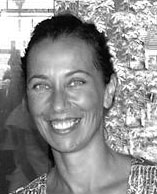Antonella Consiglio obtained her PhD in Cellular and Molecular Pathology at the HSR-TIGET (Milan) with Prof. Bordignon, and additional training at Gene Therapy Center of Lausanne and Vectors Technology Laboratory at Cell Genesys (Foster City, CA). She did her post-doctoral studies at the Salk Institute in La Jolla, under the direction of a pioneer of the field of adult neurogenesis, Prof. F.H.Gage. She is currently an Associate Professor at the Department of Pathology & Experimental Therapeutics, Faculty of Medicine and Health Science of the University of Barcelona, and leader of the Stem cell and Neurodegeneration team at the IDIBELL, Bellvitge University Hospital. In 2013 she was awarded a European Research Council (ERC) StG by the EU. She is a recipient of the 2019 City of Barcelona award to the life sciences. Her group studies the molecular mechanisms of neurodegeneration in Parkinson's disease to get to a cure.
Research interests
Understanding how genes and environment come together to increase our propensity for neurodegenerative diseases is crucial to develop better ways to prevent and treat diseases of the brain. However, studying the human nervous system at the molecular level has always been challenging due to the complexity of the brain, and the difficulty of obtaining live human neurons in the laboratory. The advent of induced pluripotent stem cell (iPSC) technology enables to reprogram human somatic cells to pluripotency, and offers a unique possibility to generate viable human cells affected by the disease. Our lab uses reprogramming technology to study basic biological aspects underlying neurodegenerative disease with complex genetic etiologies, such as Parkinson’s disease and could potentially have important clinical outcomes such as development of diagnostic tools and novel therapeutics approaches for this and other neurodegenerative diseases.
Keywords
Parkinson’s disease, Reprogramming, Stem Cells, Disease Modeling, Neurodegeneration
